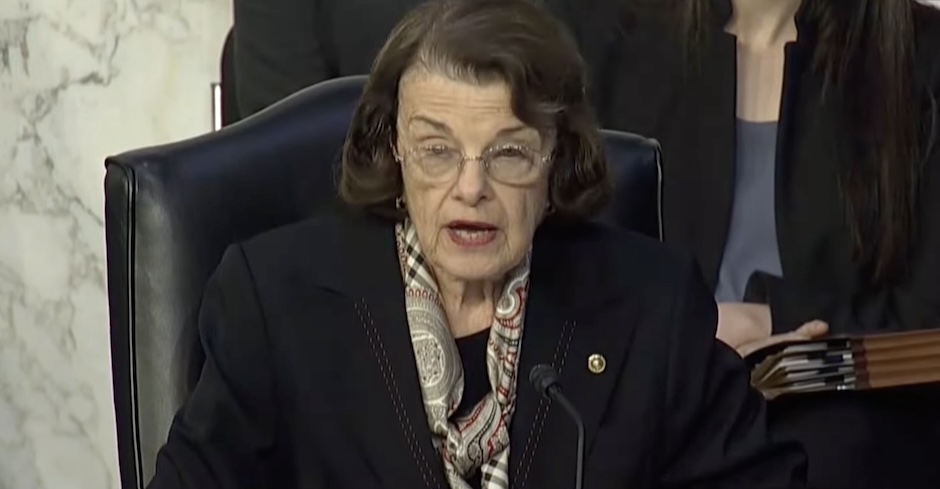ANALYSIS
Critics Blast Hypocrisy of Attacking Fetterman’s Debate Performance While Supporting Herschel Walker

Pennsylvania Lt. Governor John Fetterman‘s performance in Tuesday night’s U.S. Senate debate against Dr. Mehmet Oz was quickly praised by many supporters on social media, and quickly criticized by GOP voters and especially the mainstream media – the very same people, as some pointed out, who praise and embrace Herschel Walker despite his acknowledged mental illness and clear struggle with basic policy.
Fetterman, who suffered a stroke just days before winning the Democratic nomination for that U.S. Senate seat for Pennsylvania, has been open about his challenges and the use of what is basically a speech-to-text, or closed-captioning instrument that allows him to read what others are saying in real-time. There is no indication he has cognitive impairment, and he and says the situation is temporary.
Fetterman’s physician, Dr. Clifford Chen, “said Fetterman exhibited no effects on his ‘cognitive ability’ or his ability to think and reason after the stroke,” the Associated Press reported last week. He is “recovering well from his stroke and his health has continued to improve.”
The Nation’s Elie Mystal, who is also a popular guest on MSNBC, framed the debate.
“Sounds like Fetterman cleared the Herschel Walker bar. Don’t know why everybody else is complaining,” he wrote.
But as some pointed out, the lack of basic compassion for Fetterman has been striking.
“My God,” tweeted Pulitzer Prize winning USA Today columnist and New York Times best-selling author Connie Schultz Tuesday night after the debate, “the blue-check [high-profile] people here mocking John Fetterman during this debate, as if they are immune from the randomness of illness and infirmity. Time catches up with everyone, no exceptions. Few would have his courage to recover so publicly.”
Veteran “Saturday Night Live” co-head writer Bryan Tucker summed up some of the hypocrisy, just after the debate ended.
“There’s gonna be a lot of people criticizing John Fetterman tonight for occasional incoherence who also fully support Herschel Walker,” he wrote.
Walker has acknowledged he suffers from Dissociative Identity Disorder, which was once known as multiple personality disorder. Walker claims that thanks to God he has “overcome” it, a claim experts disagree with.
“You can get better,” Stanford University psychiatry professor Dr. David Spiegel told The New York Times. “But it doesn’t just evaporate.”
Steve Morris, a political journalist at John Heilemann’s The Recount, says, “Fetterman’s performance was objectively very bad but it’s a pretty big indictment of political media that it’s treated as worse than Herschel Walker revealing disconnection from basic reality – not knowing a federal minimum wage exists or that senators have government healthcare.”
READ MORE: ‘In the Interest of Protecting the US’: Independent Drops Out, Endorses Fetterman Ahead of Debate
He also posted video supporting his claim.
A reminder of Herschel Walker, sans stroke:
“If you have an able-bodied job, you’re gonna have healthcare. But everyone else have healthcare is the type of healthcare you’re gonna get. And I think that is the problem.”https://t.co/wubymzEZ2N
— Steve Morris (@stevemorris__) October 26, 2022
Herschel Walker is not known to have been diagnosed with CTE, Chronic Traumatic Encephalopathy. But conservative pundit Andrew Sullivan earlier this month wrote, “it’s amazing that the possibility of CTE has barely been raised, even though he has shown classic symptoms — no impulse control, murderous rage, incoherent speech, and even multiple personalities — for decades.”
Last week Tufts University Professor of Psychiatry Nassir Ghaemi, M.D., M.P.H., wrote in Psychology Today about Walker’s Dissociative Identity Disorder diagnosis and about the possibility of CTE.
“The most salient feature of Walker’s biography is that he is a famous football player. As is well known, American football is associated with repeated concussions and very high rates of chronic traumatic encephalopathy (CTE),” Ghaemi writes. “Typical symptoms of CTE are depression, marked impulsivity, violence, suicidality, and, eventually, cognitive decline. Walker, as he has noted, has described some of his psychiatric symptoms, and they mostly represent impulsivity, violence, and suicidality.”
“CTE does not go away,” he adds. “It gets worse over time. So if it is present, it would be concerning.”
Meanwhile, what, exactly, is the “political media” saying about Fetterman’s debate performance?
Immediately after the debate, Axios posted an alert: “Fetterman’s painful debate.”
“Multiple sources wondered why Fetterman agreed to debate when he clearly wasn’t ready,” wrote Axios’ Josh Kraushaar and Alayna Treene – a claim that many disagree with. “Fetterman struggled at times to respond to the moderators’ questions, even with the assistance of a closed captioning device.”
Axios cited an unnamed “Democratic lawmaker and Fetterman backer” who told them, “Why the hell did Fetterman agree to this?”
“This will obviously raise more questions than answers about John’s health,” they wrote.
Compare Axios’ treatment of Fetterman’s likely temporary challenge to how it treated Herschel Walker’s debate against Democratic U.S. Senator Raphael Warnock.
Not a single word about Herschel Walker’s acknowledged mental illness, or, as Morris (above) wrote, his “disconnection from basic reality – not knowing a federal minimum wage exists or that senators have government healthcare.”
Axios’ Emma Hurt reported that “The two Georgians answered a range of questions about abortion, inflation, Vladimir Putin and student debt relief. But they also faced questions about various controversies in their personal lives.”
As if both candidates – one who suffers mental health challenges that have reportedly led to violent threats and was “alleged to have preyed upon veterans and service members while defrauding the government,” and one a sitting U.S. Senator and pastor – were pretty much the same in ability and cognition.
“So John Fetterman, who will recover his mental acuity, shouldn’t be a Senator, But Herschel Walker, who has no mental acuity and never will, should. Is that the Republican line today?” asked Joe Conason, Editor-in-chief of The National Memo.
Politico’s Ryan Lizza and Eugene Daniels took a similar tack as Axios.
“Let’s state the obvious,” they claimed. “John Fetterman struggled to effectively communicate during his one and only Senate debate with Mehmet Oz Tuesday in Harrisburg.”
“Fetterman failed to meet even the low expectations his own campaign set for him Monday,” they continued.
“Voters are not doctors. Many are myopic, distracted, and quick to make judgments with limited information. If there’s one thing everyone knows about campaign debates, it’s how superficial they are,” the Politico pair wrote. “The median voter in Pennsylvania is a middle-aged white person with a mid-five-figure salary who did not attend college. That demographic is perhaps the least likely to be following the Fetterman ableism debate on Twitter and MSNBC.”
Policy researcher Will Stancil responded to Politico’s take.
“Herschel Walker and Donald Trump are both a lot less coherent than Fetterman, who understands policy but jumbles his words. Somehow you don’t get long rationalizations in POLITICO about how voters could be surprised by their incoherence, though.”
“Meanwhile Fetterman just wasn’t very slick. But he wasn’t out there talking about invisible planes or injecting sunlight, like Trump, or saying ‘If you have a job you have healthcare’ like Herschel Walker said, incomprehensibly, on a debate stage last week,” Stancil added.
The Washington Post’s Greg Sargent, also pointing to the same Politico piece, says, “This seems like a strangely insular way to read the politics of Fetterman’s condition. It doesn’t account for even the *possibility* that some swing voters might see it thorough the lens of their own struggles with adversity. Yet this very demographic does face such struggles.”
“The ‘median voter in PA’ doesn’t need to follow the ‘ableist’ debate to see Fetterman’s struggles through the lens of their own. Even if you think the debate cuts against him on net — which is unclear at best — this possibility needs to be at least part of the discussion,” Sargent adds.
Conservative attorney and Principles First Founder Heath Mayo objectively summed up the apparent hypocrisy.
“If you thought Fetterman’s debate performance suggests he should not be a US Senator… you can’t support Herschel Walker either. Period.”
Enjoy this piece?
… then let us make a small request. The New Civil Rights Movement depends on readers like you to meet our ongoing expenses and continue producing quality progressive journalism. Three Silicon Valley giants consume 70 percent of all online advertising dollars, so we need your help to continue doing what we do.
NCRM is independent. You won’t find mainstream media bias here. From unflinching coverage of religious extremism, to spotlighting efforts to roll back our rights, NCRM continues to speak truth to power. America needs independent voices like NCRM to be sure no one is forgotten.
Every reader contribution, whatever the amount, makes a tremendous difference. Help ensure NCRM remains independent long into the future. Support progressive journalism with a one-time contribution to NCRM, or click here to become a subscriber. Thank you. Click here to donate by check.
 |























